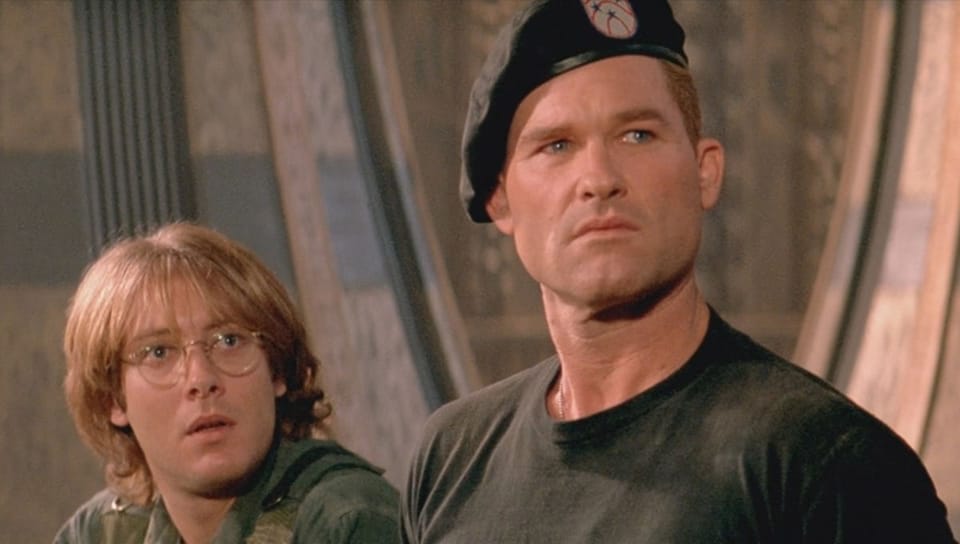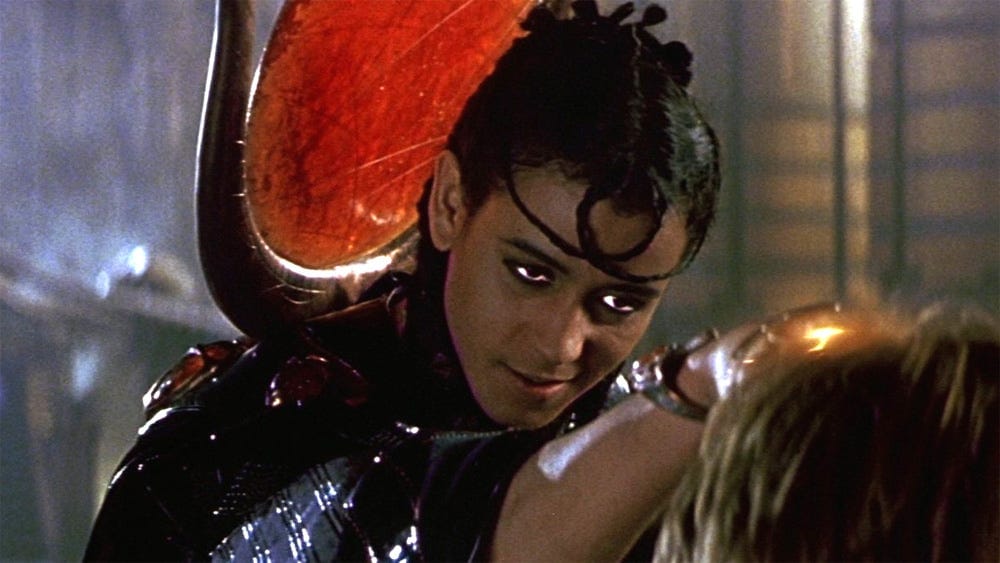'Stargate' Gazing

Yesterday marked six months since the official announcement of the 'Stargate Project'. From the start, it sounded vague at best and perhaps misleading at worst – since, at least in part, it seemed to be recycling some old announcements (a pretty standard practice under the Trump administration). But hey, it was a big PR moment and win for OpenAI, Oracle, and SoftBank – not to mention a just-sworn-in President Trump. A $500B commitment! Over the next four years! $100B set to deploy "immediately"! AI! America! So how's it going?
Here's Eliot Brown and Berber Jin reporting for The Wall Street Journal:
A $500 billion effort unveiled at the White House to supercharge the U.S.’s artificial-intelligence ambitions has struggled to get off the ground and has sharply scaled back its near-term plans.
Six months after Japanese billionaire Masayoshi Son stood shoulder to shoulder with Sam Altman and President Trump to announce the Stargate project, the newly formed company charged with making it happen has yet to complete a single deal for a data center.
Not great, Bob. But also hardly shocking given that it follows the report last month where Oracle CEO Safra Katz told investors that the 'Stargate' venture was "not formed yet". So what's the hold up?
Son’s and Altman’s OpenAI, which jointly lead Stargate, have been at odds over crucial terms of the partnership, including where to build the sites, according to people familiar with the matter.
That sounds like a couple pretty fundamental problems for a massive data center project. They're now apparently hoping to start work on a scaled down data center in Ohio by the end of the year.
One recent complication between OpenAI and SoftBank has been over how extensively to build data centers on sites tied to SB Energy, a SoftBank-backed energy developer, according to people familiar with the matter.
Altman has used the Stargate name, shared with a 1994 Kurt Russell film about aliens who teleport to ancient Egypt, on projects that aren’t being financed by the partnership between OpenAI and SoftBank. The trademark to Stargate is held by SoftBank, according to public filings.
Yeah, I mean, if SoftBank is putting up most of the money for the project, of course they're going to want to leverage their other businesses. Including, it seems, the trademark of the 'Stargate' brand, which is sort of wild that they own (presumably only as it relates to data centers, not to the actual IP from where the name comes from – as interestingly enough, Amazon actually owns that thanks to their MGM purchase). And while it doesn't seem like an issue, it's interesting that OpenAI has been using SoftBank's 'Stargate' trademark pretty loosely – for example, they've been calling the site in Abilene, Texas the first 'Stargate' site, even though it started long before SoftBank – and even OpenAI – were involved.
That site is actually a layer cake of ownership for a project Oracle has spearheaded and at first was being built thinking Elon Musk would use it for his xAI 'Colossus' site, before he broke away to build that on his own thinking Oracle was taking too long to build this data center out. And well, the first actual building on that site seemingly just came online – almost a year after 'Colossus'. Have I mentioned that 'Stargate' itself started as a Microsoft/OpenAI project until that was killed by coups and other internal issues between those two sides?
With the official 'Stargate' partnership itself delayed and seemingly scaled back for now, OpenAI is clearly moving ahead to find other venues, quite literally, for their needs. As Shirin Ghaffary and Brody Ford report today for Bloomberg:
OpenAI and Oracle Corp. announced they will develop 4.5 gigawatts of additional US data center capacity in an expanded partnership, furthering a massive plan to power artificial intelligence workloads.
OpenAI has yet to name the data center sites it will codevelop with Oracle, but states including Texas, Michigan, Wisconsin and Wyoming are under consideration. Together with its facility being built in Abilene, Texas, the company said it will have more than 5 gigawatts total in capacity, running on more than 2 million chips for AI work. Bloomberg earlier this month reported OpenAI’s plans to rent the additional data center capacity from Oracle.
And while they're still going to apparently brand these as part of the 'Stargate Project', these are also technically not 'Stargate' deals as originally envisioned as SoftBank is not actually involved – at least not yet:
While OpenAI labeled the data center expansion with Oracle as part of its Stargate project, SoftBank isn’t financing any of the new capacity, the AI company said. In May, Bloomberg reported that SoftBank was hitting snags in financing talks amid broader economic uncertainty around global tariffs.
It seems the hope would be that SoftBank can sort out their issues and that they can all retroactively fold these sites into the official 'Stargate' envelope. And while on the surface it may seem like it's just a branding exercise, there is – or was – a very real joint venture being set up between these entities with a lot of money involved. Up to $500B in fact! And perhaps even more now, to hear OpenAI – and many others – tell it. It's all being obfuscated and muddled together in these various projects and agreements (all around the world), but at some point, actual partnership agreements may become an issue – something OpenAI should know a thing or two about.
For now, 'Stargate' still only exists in name, it seems. And just barely.

Update: And sure enough, OpenAI has their own blog post out about the new data center deal with Oracle, but also with a few key new aspects worth calling out:
First and foremost, sure enough, they're fully branding these new deals as an expansion of the 'Stargate' (they've seemingly dropped 'Project' from the name). And they're now labeling the Abilene site as 'Stargate I'. And while the entire post almost seems to exist to refute the reports above, it seemingly actually backs them up:
Complementing this expansion with Oracle, our partnership with SoftBank is moving forward with strong momentum. Both are critical to meeting OpenAI’s continually expanding compute needs. With SoftBank, we’re moving quickly on site assessments and reimagining how data centers are designed to power advanced AI. These efforts will result in more capable and reliable AI for those who use our tools.
And this part seems specifically aimed at the reports that 'Stargate' is well behind plan (emphasis mine):
This significantly advances our progress toward the commitment we announced at the White House in January to invest $500 billion into 10 gigawatts of AI infrastructure in the U.S. over the next four years. We now expect to exceed our initial commitment thanks to strong momentum with partners including Oracle and SoftBank.
Meanwhile, this seems like the new key to the whole project:
Over the past six months, growing interest in Stargate has helped shape and expand our vision for this effort. Stargate is OpenAI’s overarching AI infrastructure platform—encompassing ongoing data center partnerships with Oracle, SoftBank and CoreWeave and international investments in U.S. infrastructure through OpenAI for Countries. Microsoft will continue to provide cloud services for OpenAI, including through Stargate.
In other words, the project has shifted a bit. 'Stargate' is now fully "OpenAI's overarching AI infrastructure platform" – i.e. any one partner, i.e. SoftBank, isn't needed to be involved in every part of the plan. Also, CoreWeave, not mentioned in the original plan, is now a partner since... OpenAI signed a deal with them as well.
Microsoft, meanwhile, only gets the acknowledgment in passing (as you might expect). But that's better than original equity partner MGX, which gets no mention at all...






